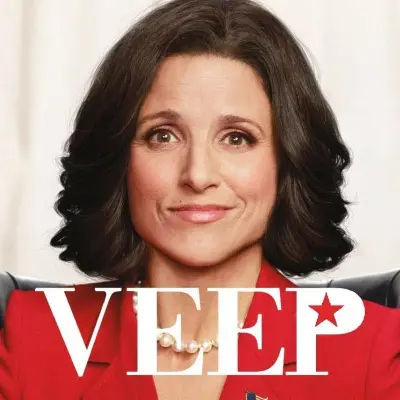Veep ends with a daring and searingly funny series finale
-

"It's impossible not to use the word 'searing' for Veep, particularly this year, because as the finale proved in multiple ways, there's more than a little bit of anger in the jokes, anger at not just the coarsening of American politics (that's been going on forever), but the venality of it as well," says Tim Goodman. "The finale made clear that was a worthy point to make. In the end Veep decided that the awful aspects of Selina (Julia Louis-Dreyfus), which were her defining characteristics, would need to go that one inch further, moving from the thing about her that made the audience die laughing to the thing that made her truly despicable. Selina was always a terrible person. It's not like there was some Walter White-like Breaking Bad evolution. Veep just decided to be more starkly honest about the toll of her presidential ambitions. It was a very bold decision from writer (and director) David Mandel and company — no doubt, Louis-Dreyfus had to be all-in on the decision — because it wasn't just that it shifted the emphasis from hilariously awful to unacceptably awful when it came to Selina and her craven pursuit of the presidency; it pushed Veep, at several points near the end of the nearly 48-minute episode, into dramatic territory it hadn't trod before. Luckily, Louis-Dreyfus is an actress, not just a fabulous comedic actress, and she sold the shift beautifully, depicting how absolute power in the form of gaining the presidency corrupts absolutely."
ALSO:
- Veep's series finale was a cautionary tale: "A show that began as an absurdist comedy about Washington weasels run amok ends as a tragedy about a society in which morality no longer seems to matter," says Jen Chaney. "David Mandel, the showrunner who took over Veep in season five after (Armando) Iannucci’s departure, and who wrote this episode, makes it clear that this is not how anyone should strive to be, especially not if one of their goals is to be happy and accomplish something meaningful. On one hand, the Veep finale is a commentary on and reflection of where things stand in American politics. But on another, it’s a pure fantasy. There is no way a woman could do all the things Selina does and be embraced by the public."
- Veep delivered a wholly satisfying, hilariously appropriate ending for one of TV’s funniest, and darkest, comedies
- The series finale was poignant yet unflinching, hilarious and heartbreaking
- Happily, the finale leaned far more on Veep’s established strengths as a work of fiction
- Veep fans compared the series finale to Game of Thrones
- Julia Louis-Dreyfus and Tony Hale break down that big Selina-Gary moment
- Go behind the scenes of Veep's series finale
- The story behind Veep's final joke on Selina Meyer
- Veep cements Julia Louis-Dreyfus as one of the greatest performers in TV comedy
- Veep showrunner David Mandel: Selina Meyer "got what she deserved"
TOPICS: Veep, HBO, David Mandel, Julia Louis-Dreyfus, Tony Hale, Series Finales
More Veep on Primetimer:- Send Them to a White Lotus: 5 Casts We'd Love to See Check Into Mike White's Resort
- Hacks Is Gleefully Disrupting Sitcom Tropes About Work-Life Balance
- Former Veep boss shares a letter from "Former Vice President Jonah Ryan" congratulating the U.S. Senate for voting to end Daylight Savings Time
- Matt Walsh and Timothy Simons are fascinated by the evolution of Veep characters in prepping for their Second in Command rewatch podcast
